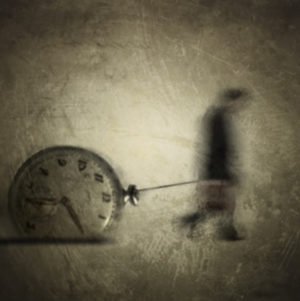You have no items in your cart. Want to get some nice things?
Go shopping Angela’s first thought, when the yelling started, was: Don’t turn around. The sound, a wordless, growling, first-gear sort of yell, recalled her instantly to the autistic boy she’d seen in the shop last month, snagged on his parents’ arms as he tried to crumple to the floor. Five people at least had stopped and stared as his mother and father grappled with him; watched, motionless, as the three of them sank to the tiles in a knot and lay there.
Angela’s first thought, when the yelling started, was: Don’t turn around. The sound, a wordless, growling, first-gear sort of yell, recalled her instantly to the autistic boy she’d seen in the shop last month, snagged on his parents’ arms as he tried to crumple to the floor. Five people at least had stopped and stared as his mother and father grappled with him; watched, motionless, as the three of them sank to the tiles in a knot and lay there.
She had despised the watchers. She had desperately wanted to stare too – everybody would, people are people – but instead had turned and walked on to the next aisle, where she had forced herself to shop for tins of tomatoes. That was what you did. You probably couldn’t help anyway, or someone else would do it better, so you pretended it wasn’t happening. It was simple good manners. So now, when the angry roar blared down the length of the café, it took her only an instant to glue her eyes to the food in front of her.
Around her the crowd gave tiny, animal signs of unease. She stared down at the supermarket meal: shepherd’s pie with machine-piped mashed potato, sloppily perfect in the way that only machines could be; khaki peas; crunchy-water lettuce. It was her Friday treat, to come here and have a hot lunch before doing her shop. The noise was really intolerable now, and she felt a spurt of irritation. Good manners went both ways: if you were the person making the fuss, you thanked the non-starers by putting a stop to it as soon as possible. Or at least looking embarrassed. There was no embarrassment in the yelling, and it was getting louder. It was a woman’s voice, shredded by rage, and it was shouting GET THE FUCK OFF ME FUCK OFF GET OFF ME UGH. The man next to her tutted and shook his head, and Angela decided that enough was enough and she would like to see what was happening now.
The café looked out over the checkout aisle, up which two men in yellow high-vis jackets were propelling a struggling girl. She was making no effort to walk, just flailing her legs at the ground in fury as the men dragged her, doubled-over, towards the door marked ‘Staff Only’. Her hair had fallen over her face and her jersey trousers had ridden down to expose half an inch of garish pink underwear, but she was beyond caring. Angela saw that nothing existed for her any more: not the shop, not the people, not the lights or the food smell or even the ground beneath her feet. There was only the struggle. The air must have been half-crushed out of her, but still she yelled like she was fighting for her life.
‘Calm … down,’ grunted one of the men as they passed the café. But the girl wasn’t going quietly. She twisted and reached for his wrist with her teeth, and in a flash he knocked her face aside and they were through the door, the screaming fading gradually as the white plastic slab swung to and finally, softly, closed.
People shuffled and turned to each other to raise their eyebrows, in the way that British people did when a scene had been made. ‘Junkies,’ said the man at the next table, contempt in his voice. ‘Terrible problem round here. Criminals. Stealing.’ He was excited, she could tell, turned on by the drama. He would tell and retell the story for weeks, entranced by its perfect balance of voyeurism and censure. He would probably still be telling the story in a year, when it would bore his wife and annoy his children, and when there was a good chance that the girl in the little white room, the girl who had fought like a mink for her freedom, would be lying dead in the ground.
Wendy would have been fifty next week. Angela realised suddenly, for the first time, that something like this must have happened to her. She was never prosecuted – she was too young – but there had been shoplifting. There had to be money for what she did, an astounding amount. She had stolen first from her friends, then from the till at work, then from shops, and then, last of all, when she had all but stopped eating, from Angela’s purse. Angela had taken this as a sign that she had done a good job of raising her: her mother’s handbag had been the last place Wendy had gone, and only when desperate.
Angela could not imagine Wendy fighting like that. She had been a good girl, a quiet girl. She never swore, or brought home bad boyfriends, or wore awful clothes. Even the way in which she had gone about deleting herself was so simple and quiet that for some time Angela hadn’t noticed. She had been too busy, with the housework and the cooking and the Post Office job and with looking after Donald, who spent most of his time in the same chair with the curtains half drawn, and when not in the chair didn’t do so much as make a cup of tea. There was a monopoly on sadness in that house: Donald had it all. Everyone else’s had to exist somewhere else, outside the walls, inside their heads.
She turned to the man at the next table, and said, ‘Excuse me. What was she stealing?’
‘Pardon?’ he said, surprised.
‘What was it?’ she said. ‘In her hand.’
‘It was a toothbrush,’ he said. ‘One of the electric ones.’
She found them on the Bathing and Showering aisle. They were expensive, with the little grey plastic tag to prove it. She paid at the self-checkout tills, though she hated the way they shouted their business; it was better than being scrutinised by one of the young assistants, memorised for ridicule at tea-break later.
The police, as she had suspected, hadn’t been called. It was a short wait at the bus stop outside the supermarket, watching the stream of people flow through the doors, until she saw her: the girl, a dirty piece of foam scudding on the current, trying to move faster than the heavy-legged shoppers. When she reached the outdoors she shrugged herself irritably from the crowd and began to march, head down, towards the road. She walked like she was beating sense into the tarmac. You could almost see the shocks rippling up through her narrow bones. Angela had gambled on the bus stop, and she had been right: the girl turned to walk in front of her and Angela stepped out, a pleasant-faced elderly woman wearing a half-smile, her hand brought softly to rest on the girl’s arm.
‘Excuse me,’ she said.
Her grip was not strong, but the girl pivoted in it, describing a little half circle around Angela before turning to her in surprise. Her face, crunched and furious a second earlier, was wiped clean by confusion, giving her the look of one woken suddenly from a long sleep.
‘Here,’ said Angela, reaching into her bag and holding out the toothbrush.
The girl looked at it, then back at Angela. ‘What?’ she said.
‘It’s for you,’ said Angela, stretching her arm out a little further. ‘A present.’
‘Are you taking the piss?’ the girl said, but her hand was already rising to take the shiny packet. She stood for a second, frowning at the old lady in front of her, then shook her head. ‘Whatever,’ she said, and turned to walk away.
‘She would have said thank you,’ said Angela, without rancour.
The girl didn’t hear her. She was part way across the road now, her hands rammed into her coat pockets. In a moment she was on the opposite pavement, in another she was obscured by a passing van, and then she was gone: dissolved into the cold grey wasteland so neatly that she might never have been there at all.

About Alex Clark
Alex Clark writes stories: mostly literary fiction, though she has a soft spot for old-fashioned ghost stories. Her work has appeared or is forthcoming with Prole magazine, Shooter Literary Magazine and The Fiction Desk. She also runs Cheltenham-based live flash fiction night Flashers' Club.



